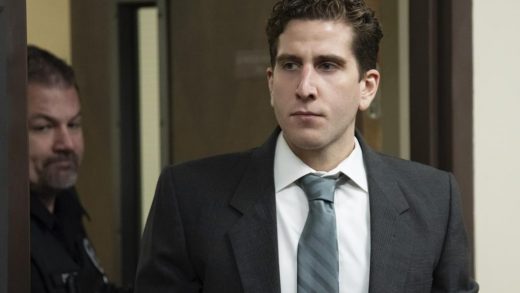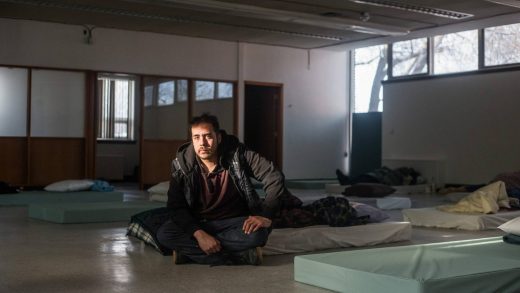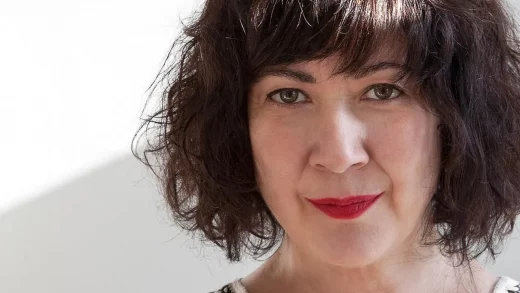:format(webp)/https://www.thestar.com/content/dam/thestar/entertainment/stage/2023/02/16/the-underground-comedy-railroad-tour-lets-canada-know-black-comedians-exist-and-deserve-to-be-supported/main_underground_comedy.jpg)
“I don’t know if you know a lot about Scotland. The castles are not enough to make you want to stay. Scotland, in my opinion, is U.K. Detroit,” headliner Tamara Shevon told a crowd of 100 people as red fluorescent lights danced across her face.
It was one of the many jokes that sparked laughter at a recent Underground Comedy Railroad show at Toronto’s Comedy Bar, part of a cross-Canada tour during Black History Month.
It’s the first and only all Black Canadian comedy tour and, for the last 11 years, has had Canadians giggling from Halifax to Ottawa.
“We created (the show) because the end of the Underground Railroad was in Canada,” creator and host Daniel Woodrow said, referring to the network of routes and safe houses that Black Americans used to escape slavery during the 19th century. “And we joke that we are bringing the Underground Comedy Railroad across Canada to cities and towns that don’t normally have Black or ethnic comedians at all.”
A new lineup of comedians joins the tour every year. This year stars Shevon, Woodrow, Alan Shane Lewis, Kevin Christopher, Rodney Ramsey and Keesha Brownie.
“We use this tour to bring opportunities to unknown Black comedians,” said Woodrow. “We all have a completely unique story that’s different from each other. Every comic isn’t the same.”
Shevon met Woodrow while she was familiarizing herself with Toronto’s comedy scene. Three years ago, he asked her to go to Ottawa and host the Underground Comedy Railroad show there.
The tour began in 2012 with Woodrow and Ramsey after they realized they were the only Black comedians at a show in 2011. Since then, there has been an album recorded that now plays on Sirius XM in North America; the tour has received funding from the Unknown Comedy Club and sells out in almost every city it visits.
“We are achieving a lot more than what we would be able to do individually,” said Shevon. “It feels like a Sunday dinner with your Black family.”
In her last touring experience, with the Irritable & Confused Comedy Tour, she was the only Black person in the cast.
With touring comes the challenge of figuring out what’s socially acceptable when performing for crowds that aren’t as culturally aware or in places where the population is primarily white.
“Sometimes I ask how many Black people live in this city and generally someone yells out an answer with a specific number,” Woodrow said with an awkward chuckle.
“Do you lean into who you are as a Black performer or would that turn people off because they’re going to be offended?” said Shevon. “Part of me feels like, why should I even have to explain or cater to them? I grew up in white suburbia and I was the only Black person on the street. I have to unwork the logic of being ‘too Black.’”
But in adapting to different crowds, the comedians can also think about things from a different perspective, Lewis said.
“The show is not just for Black people, it’s for everyone,” Woodrow said.
The name of the tour itself, Underground Comedy Railroad, invites introspection for the comedians when creating their material.
“I’m forced to check into our history and have a mental conversation about the idea of liberation,” said Lewis. “It rings true to a lot of the material I like to talk about, (but that) we don’t think about in Canada; it’s more of an American phenomenon.”
The Underground Comedy Railroad tour also prides itself on leaning into its cast’s individual experiences.
“Ethnic names are the best scents, like Hawaiian breeze, tropical summer, Lavinder,” joked Brandon Ash-Mohammed, a special guest at last Saturday’s show who’s also a staff writer on “RuPaul’s Drag Race.” Ash-Mohammed hails from Trinidad and enjoys referencing his mixed Indian and African ancestry in the jokes he writes.
But the main goal of the tour is to honour the show’s content and comedians beyond Black History Month. Despite the tour only lasting one month, Woodrow uses each show to demonstrate that a variety of Black Canadian comedians exist and deserve to be supported beyond February.
“A lot of us come from hurt and traumatizing things, but we are able to make light of it and make it fun for everyone. It’s a celebration of how far we’ve come, not an education process,” said Shevon.
Woodrow also sees potential in bringing comedy to audiences digitally.
“During the pandemic, we moved our shows to be virtual; we didn’t know how it would go. We hired a DJ to make it a full experience. We ended up selling 100 tickets for the first show and kept it going,” Woodrow said.
Even though the tour returned in person this year, the virtual shows generated an opportunity to do gigs for corporations.
Here in Toronto, demand for the Underground Comedy Railroad tour was so high that a second show was added Thursday at the Comedy Bar in Danforth.
“We’re showing people what Black excellence actually is,” Shevon said. “If you’re a younger, Black comic and you put in the work, you’re going to get rewarded.”
JOIN THE CONVERSATION



